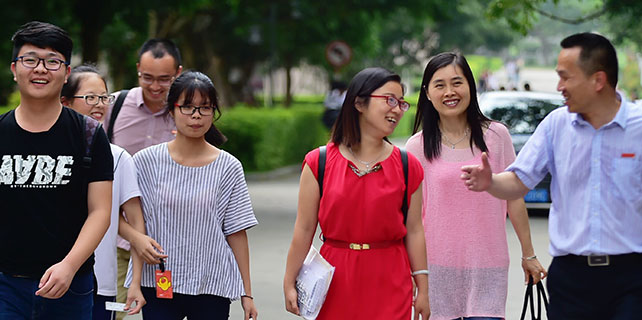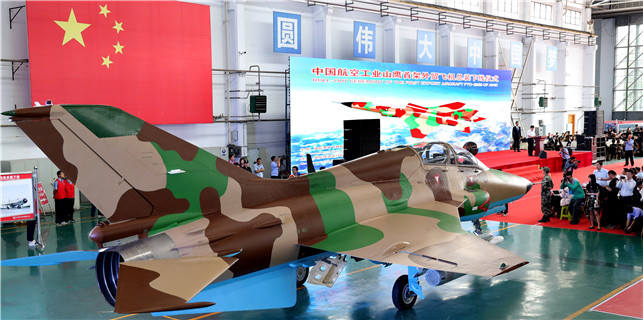India and Pakistan are joining SCO
Xi at summit this week expanding Shanghai Cooperation Organization
India and Pakistan will be accepted as members of the Shanghai Cooperation Organization this week at a summit to be attended by President Xi Jinping in Astana, Kazakhstan. The move will make the SCO one of the biggest regional organizations, covering about half of the world's population.
Analysts said that while the increase in members may bring a bigger variety of voices in the organization, any disagreements can be resolved through communication and consultation.
The two new countries will go through official procedures to become members during the 17th Meeting of the Council of Heads of State of the SCO, Assistant Foreign Minister Li Huilai said at a news conference on Monday.
Xi will make a state visit to Kazakhstan at the invitation of Kazakh President Nursultan Nazarbayev from Wednesday to Saturday. He will attend the SCO summit and the opening ceremony of Astana Expo 2017.
India and Pakistans' accession to the SCO will increase the organization's global impact and representative nature, Li said, adding that the cooperation potential and scope of the organization will be increased.
By accepting the two countries, the SCO will expand its geographical coverage to South Asia. It will account for three-fifths of the area of Eurasia, he added.
The SCO launched accession procedures for India and Pakistan in July 2015 at the Ufa summit in Russia. At the SCO's Tashkent summit in Uzbekistan in June 2016, SCO members signed the memorandum on the obligations for India and Pakistan to obtain membership in the SCO.
China will have the rotating presidency of the SCO next year. Xi will talk with other leaders at the summit about making the SCO stronger and a bigger contributor to global peace and stability, Li said.
During Xi's visit, China and Kazakhstan will sign cooperation documents in such areas as production capacity, investment, finance and trade, Li said. The two presidents will speak on a video conference call on Eurasia cross-border transportation, talking to people such as port workers in East China, he added.
Kazakhstan has played a leading role in jointly building the Belt and Road, and with China has agreed on 51 projects of production capacity, with a total investment of $27 billion, Li said.
Xing Guangcheng, a senior researcher of Russian and Central Asian studies at the Chinese Academy of Social Sciences, said that the incoming members of the SCO will bring more energy to the organization and increase its influence.
"Any expansion in an organization can be a double-edged sword," he said, adding that SCO members may have different interpretations of the organization and different voices may emerge in the future.
Wu Hongwei, another Central Asian studies researcher at CASS, said SCO members can cultivate cooperative potential in economics, culture and education, and reach consensus through more dialogue.









